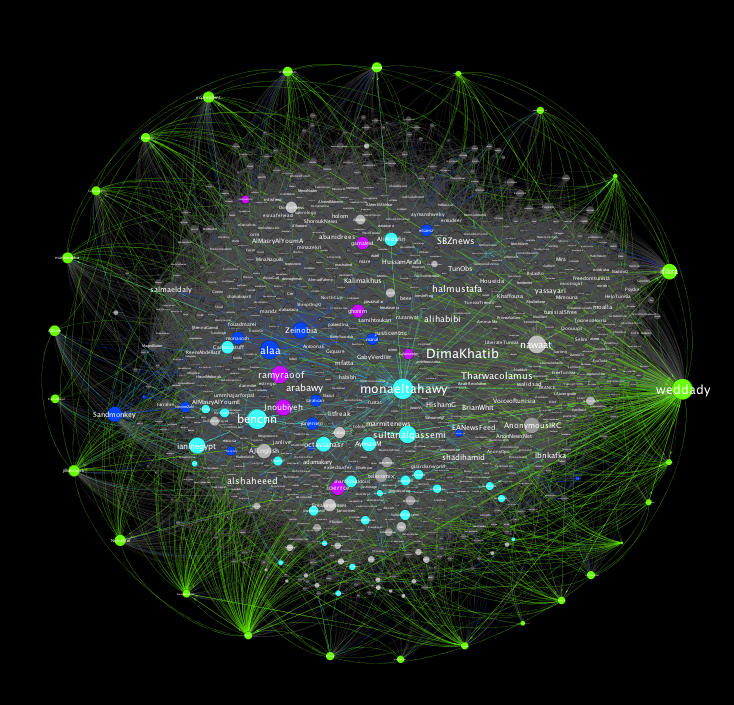For many of us the idea of social media is nothing new. Those of us born into the digital age of the computer and the internet are now being referred to as digital natives. Our generation knows little of what it is like to live in a society that is not always in constant connection with each other. With the influx of new technologies being developed that encourage us to participate in sharing information and ideas with each other through social networking many times we forget to question whether or not these technologies are effect us in a positive or negative way. In the case of sites like Facebook and Twitter we have seen a trend in people feeling antagonized by the pressure to remain updated on the lives of their friends. They are bombarded with useless information that they really had no business knowing in the first place and tend to waste their time on these sites when they could be engaging in more intellectually stimulative activities. However a recent study by Gilad Lotan an avid fan of blogs and new forms of media is providing a new outlook on how social media can be used as a tool for social mobilization.

In Gilad Lotans’ study The Revolutions Were Tweeted, he looks to indentify the effect that ordinary citizens had on mobilizing other against the injustices being face in their countries. Lotan does this by analyzing groups of tweets by hashtags (e.g #sibouzid) and identifying 12 key groups of media that would be present during the revolution. These groups ranged from forms of traditional media to bloggers, to pirating and advertising bots. results of Lotans study showed a great increase the amount of newer forms of media such as bloggers, activists and journalists were the most active on twitter in spreading news about the revolution. This is ground breaking because now there is legitimate evidence that the internet can be a tool that elicits social change or at least spreads information and allows ordinary citizen a chance to participate in the exchange of information. While in the past people were confined by their inability to afford writing technologies or a lack of education, Twitter has now given them everything that they need to being a discussion. An interesting picture that I found on Gilad Lotans’ site shows the effects of individuals in spreading the word about injustices being face in Egypt and Tunisia.
